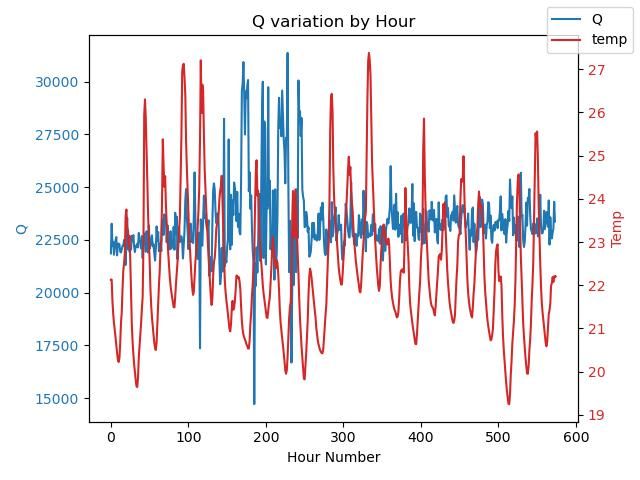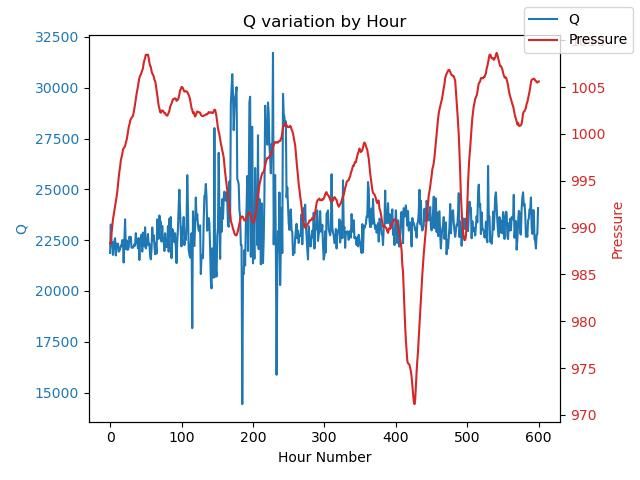My experimental pendulum reports 21399
It's calculated using the bandwidth definition because logging a pendulum with a microprocessor produces all the data needed to calculate bandwidth. Much easier that measuring decay and, I think, measuring impulsed Q is more useful than measuring free-swinging Q. Clock pendulums are impulsed, not free.
Bandwidth is calculated from the 29.3, 50,0 and 70.7 percentiles.
Easy in Python because numpy has a percentile function. Where tickArray is a list of periods:
h, l, r = np.percentile(tickArray, [70.7, 29.3, 50] )
b = h – l
q = r / b
Usefulness of Q? The balance wheel in a marine chronometer has Q of about 400, that of an ordinary well-made pendulum is said to be about 10000. Best vacuum enclosed pendula, up to about 100,000.
I see Q as a measure of the purity and stability of an oscillator, where high Q means it produces close to one frequency only. Real oscillators do not produce a single frequency, they wobble around it, and they are likely to drift.
I've noticed good long-term time-keeping can be got from a low Q pendulum – less than 5000. I believe it's because wobble errors tend to average out, and aren't obvious unless the clock has a high resolution display. As most pendulum clocks only display to the nearest second or minute, low Q may not matter because the error is invisible and doesn't accumulate. However, high Q becomes important whenever a clock must be high-precision or high-resolution.
I need a high Q pendulum because I'm chasing milliseconds and below, but what I'm doing is bonkers!
One of the other threads asked if Q varies. Normally Q is measured once by simple methods and assumed to a constant. My pendulum's Q isn't!

The data suggests the Q of my pendulum varies between about 15000 and 31000. The red line shows temperature and I think I see a relationship – after a lag, temperature causes Q to vary. Far from convincing though – I don't know what causes this. Hard to think why Q should repeatedly peak over a 100 hour period. Perhaps the moon did it!
Like as not other pendula do the same, because mechanical or environmental changes are likely to affect the purity of the signal. Anyone happy with their clock is advised not to look too closely! That way lies madness. Nature conspires in many ways to subtly alter the period of a pendulum despite the clockmaker's best efforts.
Dave
 Michael Gilligan.
Michael Gilligan.





